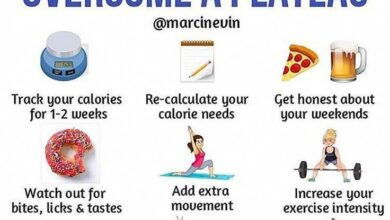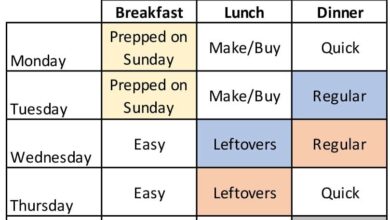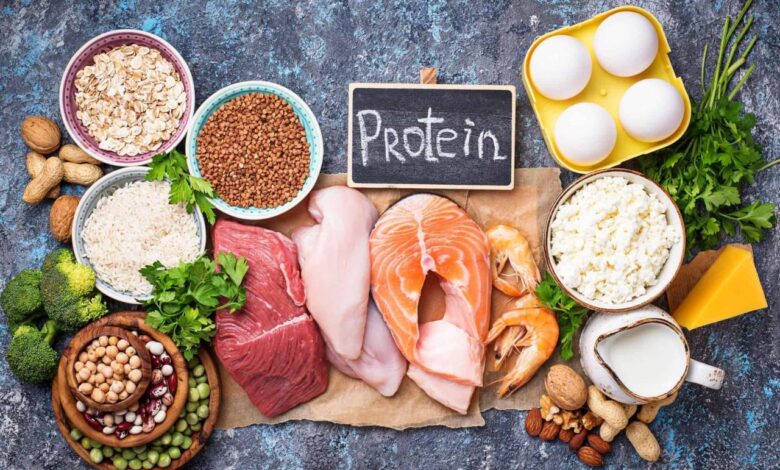
High Protein Diet Plan: Your Guide to Building Muscle and Feeling Full
High protein diet plan: It’s a phrase that’s been buzzing around the health and fitness world for years, promising everything from muscle growth to weight loss. But what exactly is a high protein diet, and is it right for you?
At its core, a high protein diet involves consuming a larger percentage of your daily calories from protein sources. This can come from lean meats, fish, eggs, dairy products, beans, and even certain plant-based alternatives. The idea is to increase your protein intake to help build and repair muscle tissue, boost metabolism, and promote a feeling of fullness, which can be particularly beneficial for weight management.
Designing a High Protein Diet Plan
A high-protein diet plan emphasizes consuming more protein than carbohydrates and fats. This approach can be beneficial for various reasons, including weight management, muscle building, and satiety. However, it’s crucial to design a balanced and sustainable plan that meets your individual needs and preferences.
Creating a Sample High Protein Diet Plan
A high-protein diet plan typically involves consuming around 1.2 to 1.6 grams of protein per kilogram of body weight daily. This section provides a sample meal plan for a day to illustrate how to incorporate high-protein foods into your diet.
Breakfast
- 2 cups Greek yogurt with 1/4 cup berries and a sprinkle of chia seeds.
- 3-egg omelet with spinach, mushrooms, and a slice of whole-wheat toast.
- Protein smoothie made with protein powder, milk, spinach, and banana.
Lunch
- Grilled chicken salad with mixed greens, vegetables, and a light vinaigrette dressing.
- Tuna salad sandwich on whole-wheat bread with lettuce and tomato.
- Lentil soup with a side of whole-grain bread.
Dinner
- Salmon baked with lemon and herbs, served with roasted vegetables.
- Chicken stir-fry with brown rice and tofu.
- Lentil and vegetable curry with basmati rice.
Snacks
- Handful of almonds or walnuts.
- Greek yogurt with a scoop of protein powder.
- Hard-boiled eggs.
Incorporating High-Protein Foods into a Balanced Diet
A balanced high-protein diet includes a variety of protein sources to ensure you’re getting all the essential amino acids.
- Lean meats:Chicken, turkey, fish, and lean beef are excellent sources of protein. Choose lean cuts and prepare them using healthy cooking methods like grilling, baking, or poaching.
- Eggs:Eggs are a versatile and affordable source of protein. They are also a good source of essential vitamins and minerals.
- Dairy:Milk, yogurt, and cheese are good sources of protein and calcium. Choose low-fat or fat-free options for a healthier choice.
- Legumes:Lentils, beans, and peas are excellent sources of protein and fiber. They can be incorporated into soups, stews, salads, and other dishes.
- Nuts and seeds:Almonds, walnuts, pumpkin seeds, and sunflower seeds are good sources of protein, healthy fats, and fiber.
- Soy products:Tofu, tempeh, and edamame are plant-based sources of protein. They can be used in stir-fries, salads, and other dishes.
Importance of Consuming a Variety of Protein Sources
Consuming a variety of protein sources is crucial for several reasons.
A high protein diet plan can be a great way to feel full and satisfied, especially during the summer months. But it’s important to stay hydrated and make sure you’re getting all the nutrients you need. Check out these healthy eating tips for summer to keep in track to ensure your diet is balanced and enjoyable.
Remember, a high protein diet can be a powerful tool for summer, but it’s crucial to maintain a well-rounded approach for optimal health.
- Complete Protein:Some protein sources, like animal products, are considered “complete” because they contain all nine essential amino acids that your body needs. Plant-based sources may not provide all the essential amino acids, so it’s important to consume a variety of plant-based proteins throughout the day to ensure you’re getting all the necessary nutrients.
- Nutrient Variety:Different protein sources provide different vitamins, minerals, and other nutrients. For example, fish is a good source of omega-3 fatty acids, while beans are a good source of fiber.
- Reduced Risk of Chronic Diseases:Studies have shown that consuming a variety of protein sources can help reduce the risk of chronic diseases like heart disease and type 2 diabetes.
Potential Risks and Considerations: High Protein Diet Plan
While a high protein diet can offer numerous benefits, it’s essential to be aware of potential risks and considerations to ensure a safe and sustainable approach. Consuming excessive protein can strain your kidneys, dehydrate you, and potentially lead to nutrient deficiencies.
Kidney Strain
High protein intake can increase the workload on your kidneys, which filter waste products from your blood, including excess protein. Over time, this strain could potentially lead to kidney damage, especially if you have pre-existing kidney conditions.
Dehydration
Protein metabolism generates urea, a waste product that your kidneys excrete. When your protein intake is high, your kidneys need to work harder to filter out this excess urea, which requires more water. If you don’t drink enough fluids, you may become dehydrated.
A high protein diet plan can be tough to stick to when cravings hit. That’s why I find it helpful to have a few go-to healthy meal options that satisfy my protein needs without feeling restrictive. One of my favorites is Chipotle, where I can easily customize my bowl to be high in protein.
Check out this article on healthy ways to order Chipotle for some great tips. By following these tips, I can get a filling and protein-packed meal that keeps me on track with my diet plan.
Nutrient Deficiencies
A high protein diet often emphasizes animal sources, which can lead to an imbalance in nutrient intake. It’s crucial to ensure you’re getting enough fiber, vitamins, and minerals from plant-based sources.
A high protein diet plan can be a great way to manage weight and build muscle, but it can be tough to find satisfying meals that fit your calorie goals. That’s where this 250 calorie chicken cauliflower fried rice recipe comes in.
It’s packed with protein from the chicken and cauliflower, and it’s a delicious way to keep your high protein diet plan on track without feeling deprived.
Mitigating Risks
You can mitigate these risks by following these guidelines:
- Consult a healthcare professional:Before starting a high protein diet, consult your doctor, especially if you have any pre-existing health conditions, such as kidney disease, diabetes, or gout.
- Limit protein intake:Aim for a moderate protein intake of 0.8 grams per kilogram of body weight per day.
- Hydrate adequately:Drink plenty of water throughout the day to support kidney function and prevent dehydration.
- Include a variety of foods:Ensure a balanced diet that includes fruits, vegetables, whole grains, and healthy fats to prevent nutrient deficiencies.
- Monitor your kidney function:Regularly check your kidney function with your doctor, especially if you have any concerns.
Consulting a Healthcare Professional
Consulting a healthcare professional is crucial before starting a high protein diet, particularly for individuals with specific health conditions. They can assess your individual needs and recommend a safe and effective plan. For instance, people with kidney disease should consult their doctor before increasing their protein intake, as excessive protein can put further strain on their kidneys.
High Protein Diets and Other Health Considerations
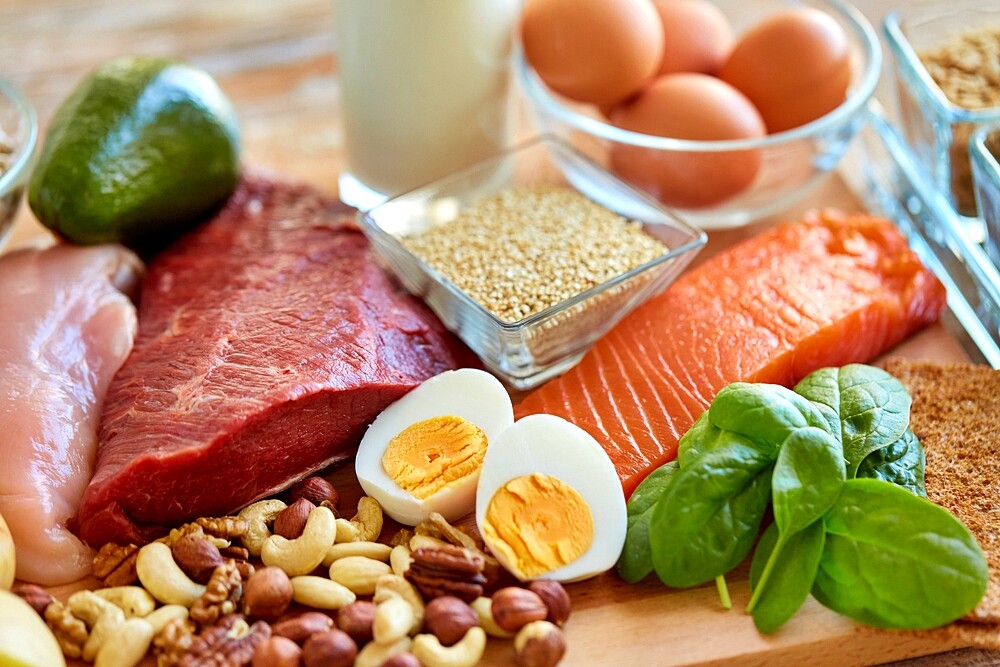
While high protein diets can be beneficial for weight management, muscle building, and overall health, it’s crucial to understand their potential impact on various aspects of your well-being. This section explores potential concerns and provides insights on managing these effects to ensure your overall health remains optimal.
Impact on Blood Sugar Levels
High protein diets can affect blood sugar levels in various ways. While protein itself doesn’t directly raise blood sugar, it can influence insulin sensitivity and glucose regulation. The breakdown of protein into glucose (gluconeogenesis) can contribute to increased blood sugar levels, particularly in individuals with insulin resistance or diabetes.
Impact on Bone Health, High protein diet plan
A common concern with high protein diets is their potential impact on bone health. While protein is essential for bone growth and maintenance, excessive protein intake can increase calcium excretion in urine, potentially leading to bone loss over time.
It’s important to note that this effect is more pronounced in individuals with pre-existing bone health conditions or those who consume insufficient calcium or vitamin D.
Managing Potential Effects
To mitigate potential risks associated with high protein diets, consider these strategies:
- Adequate Hydration:Ensure you drink plenty of water to help flush out excess calcium and prevent dehydration, which can contribute to bone loss.
- Calcium and Vitamin D Intake:Prioritize calcium-rich foods like dairy products, leafy greens, and fortified foods. Supplement with vitamin D if needed to enhance calcium absorption.
- Balanced Diet:Include a variety of nutrient-rich foods, including fruits, vegetables, and whole grains, to provide essential vitamins and minerals.
- Consult a Healthcare Professional:It’s crucial to consult with a healthcare professional, particularly if you have pre-existing health conditions, to determine the appropriate protein intake for your individual needs and health goals.
Other Health Considerations
While high protein diets can be beneficial for many, they might not be suitable for everyone.
- Kidney Health:Individuals with kidney disease should consult with their healthcare provider before adopting a high protein diet, as excessive protein intake can burden the kidneys.
- Liver Health:High protein intake can potentially strain the liver, especially in individuals with pre-existing liver conditions.
- Digestive Issues:Some individuals may experience digestive discomfort, such as bloating or constipation, due to increased protein intake.
Final Conclusion
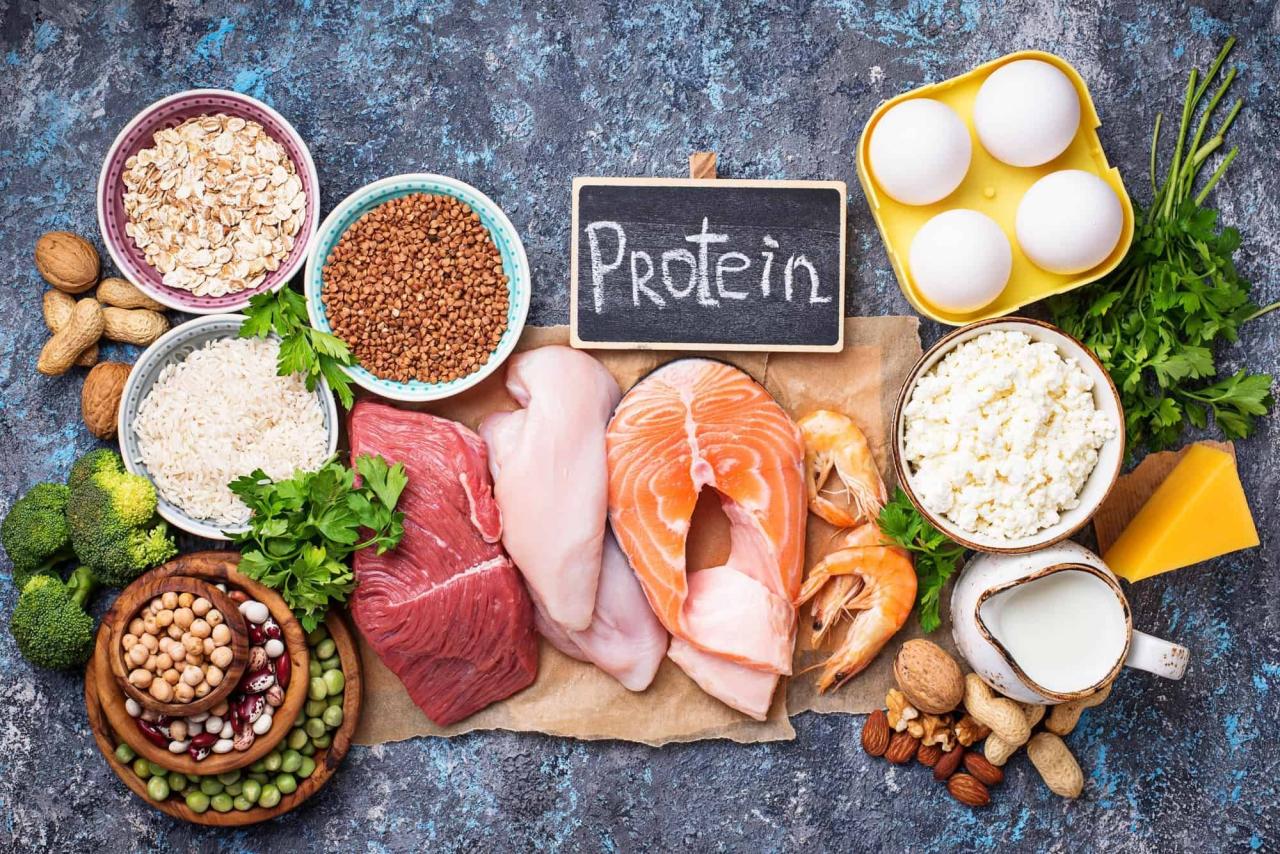
Whether you’re looking to build muscle, lose weight, or simply feel more energized, a high protein diet can be a powerful tool. However, it’s crucial to approach it with a balanced and informed perspective. Remember to consult with a healthcare professional or registered dietitian to determine the appropriate protein intake for your individual needs and to ensure you’re getting all the essential nutrients your body requires.
By understanding the benefits and potential risks, and making informed choices, you can embark on a high protein journey that supports your overall health and well-being.



